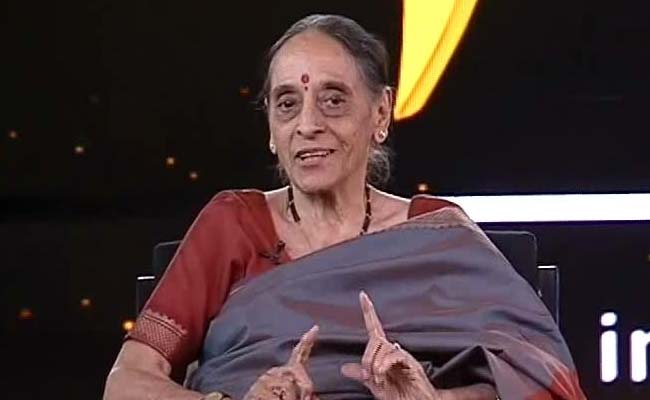
Breaking into what was largely a man's profession wasn't easy, recalled Justice Seth.
New Delhi:
Looking back, looking forward - NDTV-L'Oreal Women of Worth Conclave on International Women's Day was about anecdotes. How children view their parents, getting jobs, changing times. Some of the best of these came from Justice (Retd) Leila Seth, veteran photographer Raghu Rai and political leader Farooq Abdullah.
Breaking into what was largely a man's profession wasn't easy, recalled Justice Seth. It was a time when there were just two women practising in court.
When she had gone to ask one of the renowed lawyers of the day to allow her to join as his junior, he was anything but encouraging, she said. "Mr Chaudhary told me young woman this is not the profession for a woman, go get married. I said I already was."

The interview, Justice Seth recalled, became a process of tick the boxes - marriage, one child, a second child. Finally, he grudgingly agreed, commending her persistence.
Her anecdote about what happened when she became a judge, had the audience laughing.
There was a huge crowd in the courtroom one day, Justice Seth said. Asked what the matter was, a court official replied that people from outsider Delhi had come to see Charan Singh, the new Prime Minister. "But they also wanted wished to see a little of the city, so they went to the zoo, and hearing that there was a woman judge, they came to visit the courthouse," she said.
Photographer Rahu Rai recalled the time when he had gone to Nainital to talk at a girls' school. He was accompanied by his nine-year-old daughter, who after the talk, came and sincerely congratulated him. "The way she said was so delightful and genuine... It made my day," he said.
But days later, when his wife asked his daughter whether she would "go with papa to hear him talk at another school," the child replied that she had already heard whatever he had to say, Mr Rai recalled, to the great amusement of the audience.
Contending that the "sense of wanting a boy is still very much a part of our society," Mr Abdullah recollected that he recently met someone who, despite having three daughters, was trying for a son. "I told them three daughters are enough. Educating them won't be cheap. They said they wanted a boy."
Sarpanch of an Odisha village, Aarti Devi, recalled how she started an adult education campaign. The theme was, 'No thumb impression- only signature."
Emphasising the need to educate girls, Nidhi Dubey, country director of Girl Rising India, said, "If girls get 12 years of education, it can bring down child marriage and infant mortality".
Breaking into what was largely a man's profession wasn't easy, recalled Justice Seth. It was a time when there were just two women practising in court.
When she had gone to ask one of the renowed lawyers of the day to allow her to join as his junior, he was anything but encouraging, she said. "Mr Chaudhary told me young woman this is not the profession for a woman, go get married. I said I already was."

Justice Leila seth at NDTV-L'Oreal Women of Worth Conclave event.
The interview, Justice Seth recalled, became a process of tick the boxes - marriage, one child, a second child. Finally, he grudgingly agreed, commending her persistence.
Her anecdote about what happened when she became a judge, had the audience laughing.
There was a huge crowd in the courtroom one day, Justice Seth said. Asked what the matter was, a court official replied that people from outsider Delhi had come to see Charan Singh, the new Prime Minister. "But they also wanted wished to see a little of the city, so they went to the zoo, and hearing that there was a woman judge, they came to visit the courthouse," she said.
Photographer Rahu Rai recalled the time when he had gone to Nainital to talk at a girls' school. He was accompanied by his nine-year-old daughter, who after the talk, came and sincerely congratulated him. "The way she said was so delightful and genuine... It made my day," he said.
But days later, when his wife asked his daughter whether she would "go with papa to hear him talk at another school," the child replied that she had already heard whatever he had to say, Mr Rai recalled, to the great amusement of the audience.
Contending that the "sense of wanting a boy is still very much a part of our society," Mr Abdullah recollected that he recently met someone who, despite having three daughters, was trying for a son. "I told them three daughters are enough. Educating them won't be cheap. They said they wanted a boy."
Sarpanch of an Odisha village, Aarti Devi, recalled how she started an adult education campaign. The theme was, 'No thumb impression- only signature."
Emphasising the need to educate girls, Nidhi Dubey, country director of Girl Rising India, said, "If girls get 12 years of education, it can bring down child marriage and infant mortality".
Track Latest News Live on NDTV.com and get news updates from India and around the world

